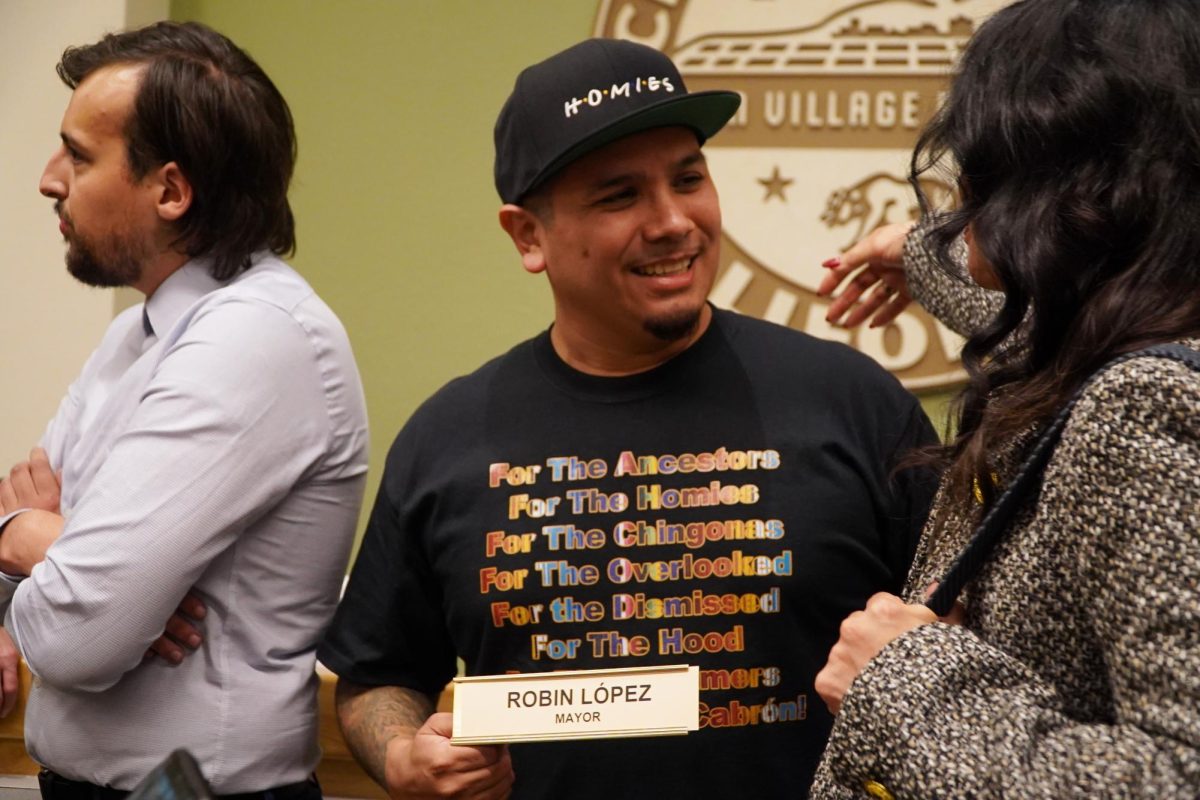The Board of Supervisors unanimously approved the creation of a task force Sept. 24 to tackle the street-level drug dealing which plagues the Tenderloin, SoMa and Mid-Market neighborhoods.
The 12-seat committee will advise city officials on policy decisions and submit to the Board of Supervisors and mayor a plan by the end of 2020 to address local drug dealing. District 6 Supervisor Matt Haney said he secured $200,000 from the city budget for its first year of operation.
“I am creating this task force in response to the frustration, anger and hopelessness that many of my constituents are feeling about the endemic crisis of street level-drug dealing,” District 6 Supervisor Matt Haney said the previous week at a Rules Committee presentation.
District 6, which includes the Tenderloin, SoMa, and Mid-Market neighborhoods, accounted for 68% of 883 drug-dealing citations or arrests made citywide in the 2017-2018 fiscal year, according to a Budget and Legislative Analyst’s Office report from April.
Out of the 601 cases presented to the District Attorney’s office, about 46% of the filed charges were still pending in April. Only 15.6% resulted in a county jail sentence.
Remaining cases resulted in probation, dismissal or other action. Just 5% of people in those cases were diverted — moved out of the criminal justice system and into health or social service programs, according to the report.
The Board of Supervisors will appoint nine people not employed by the city, including individuals “directly impacted by the harms” of drug dealing, as well as people with backgrounds in relevant fields like law enforcement and public health. The police department, public defender’s office and District Attorney’s Office will each appoint an employee to the force.
Though city employees will receive their regular pay for time spent on the task force, other members would work on a volunteer basis with a potential $50 stipend per meeting attended.
The task force was suggested in April during a four-hour hearing called by Haney to address open-air drug dealing, which drew an impassioned crowd to City Hall.
At the previous week’s meeting, Haney said his office had received hundreds of calls and emails on the issue.
Among them was an email from Max Young, a third-generation San Franciscan announcing the closure of his Mid-Market night club, Mr. Smith’s, after 19 years of business.
“Shame on all of you for letting our streets get so horrific that small businesses cannot survive,” Young wrote, stating that rampant open-air drug dealing has taken over his block to the point where his employees, customers and even himself don’t want to be there.
San Francisco spent more than $12 million that year on “suppression and related criminal justice costs” of open-air drug dealing in the Tenderloin, SOMA, and Mid‐Market areas, according to the budget analyst report.
“I don’t know what possibly can be done, because they keep throwing money at the situation and it’s not getting any better,” said Glenn Gustafik, pointing to a group he says sell drugs outside his business.
Gustafik owns Mister Hyde, a barbershop on Hyde and O’Farrell streets, which falls within a zone police identified as a hotspot for drug dealing at the April hearing. Until he sees results, Gustafik said, he won’t have an opinion on the city’s latest efforts to address the issue.
Alongside the drug dealing task force, Haney introduced a resolution Tuesday declaring overdose deaths a public health crisis, citing 259 overdose deaths in San Francisco in 2018.
Earlier this year Mayor London Breed announced the Methamphetamine Task Force to address rising methamphetamine use in the city. A safe injection services task force was created in 2017, which recommended opening safe injection sites in the city, something that has not been accomplished.
Rose Nguyen, an employee of a small café in the Tenderloin, says drug-dealing has increased in the last three years, and business has slowed because of it.
“Nobody protects me,” said Nguyen, who requested the name of the café be withheld to avoid retaliation. “Even the guys dealing drugs, they know — police come by (and do) nothing.”
Nguyen said she calls police frequently but rarely receives assistance clearing the drug dealers and drug users that gather outside the café, which has been in business for over 20 years. She said she requested the landlord install water misters outside to deter people from gathering, as other businesses in the area have resorted to doing.
The drug dealing task force will go before the mayor for final approval and become effective 30 days after she approves it. Its first meeting would be held within the 90 days that follow.






